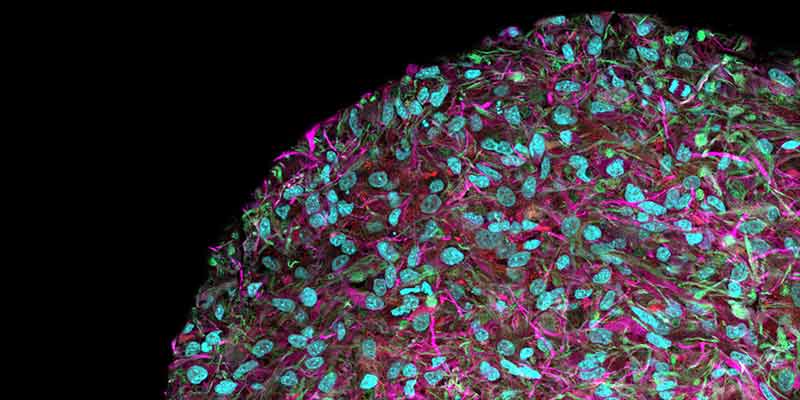- World
- Mar 15
What is Organoid Intelligence (OI)?
• Researchers have outlined a plan to develop a ‘biocomputer’ powered by human brain cells. Scientists at Johns Hopkins University expect such technology to exponentially expand the capabilities of modern computing and create novel fields of study.
• They have called this technology “organoid intelligence (OI)”.
• The emerging field of OI aims to leverage the extraordinary biological processing power of the brain.
• Artificial Intelligence (AI) means a machine-based system that can, for a given set of human-defined objectives, make predictions, recommendations or decisions influencing real or virtual environments.
• While AI aims to make computers more brain-like, organoid intelligence (OI) research will explore how a 3D brain cell culture can be made more computer-like.
The extraordinary power of human brain
• Human brains are slower than machines at processing simple information, such as arithmetic, but they far surpass machines in processing complex information as brains deal better with few or uncertain data.
• The human brain is unmatched by modern information technology: In 2013, the world’s fourth largest computer took 40 minutes to model one second of 1 per cent of a human’s brain activity.
• The storage capacity of a single human brain has been estimated at 2,500 TB.
• To give some perspective on energy requirements, it would take 34 massive coal-powered plants generating 500 megawatts each to equal the power demands that US based data centers would require to hold this much data.
• Brains, on the other hand, have been estimated to be about 100,000 times more energy-efficient than computers, and could meet the same data storage capacity with only 1,600 kilowatts of energy, illustrating the immense implications of brain-directed computing for energy conservation.
• Besides massive increase in energy efficiency, it is becoming more and more clear that the human brain outperforms man-made computers on many levels such as decision taking on incomplete datasets.
• In June 2022, for the first time, the Frontier supercomputer (OLCF-5) hosted at the Oak Ridge Leadership Computing Facility in Tennessee exceeded the estimated computational capacity of a single human brain, estimated at 1 exaFLOP. This required a 6,800 sqft installation at $600 million and 10 million watt of energy consumption.
• The prospect of biological computing not only promises some aspects of this efficiency, exactly when the packing of more and more transistors on chips comes to physical limits, but also to translate aspects such as progressive learning and decision-taking based on incomplete and contradictory datasets to artificial intelligence (AI).
Brain organoids
• For nearly two decades scientists have used tiny organoids — lab-grown tissue resembling fully grown organs, to experiment on kidneys, lungs, and other organs without resorting to human or animal testing. More recently, researchers at Johns Hopkins have been working with brain organoids, orbs the size of a pen dot with neurons and other features that promise to sustain basic functions like learning and remembering.
• They began to grow and assemble brain cells into functional organoids in 2012 using cells from human skin samples reprogrammed into an embryonic stem cell-like state.
• Each organoid contains about 50,000 cells, about the size of a fruit fly’s nervous system.
• They now envision building a futuristic computer with such brain organoids.
• Computers that run on this “biological hardware” could in the next decade begin to alleviate energy-consumption demands of supercomputing that are becoming increasingly unsustainable.
Organoid Intelligence
• Earlier, the term biological computing was mainly used to describe the use of biochemical data storage systems, using DNA as a medium for digital information storage.
• It might take decades before organoid intelligence can power a system as smart as a mouse. But by scaling up production of brain organoids and training them with artificial intelligence, the researchers foresee a future where biocomputers support superior computing speed, processing power, data efficiency, and storage capabilities.
• Organoid intelligence could also revolutionise drug testing research for neuro-developmental disorders and neurodegeneration.
• Biological, brain-directed computing will be an alternative to silicon-based computing, with the potential for unprecedented advances in computing speed, processing power, data efficiency, and storage capabilities – all with lower energy needs.
Manorama Yearbook app is now available on Google Play Store and iOS App Store

